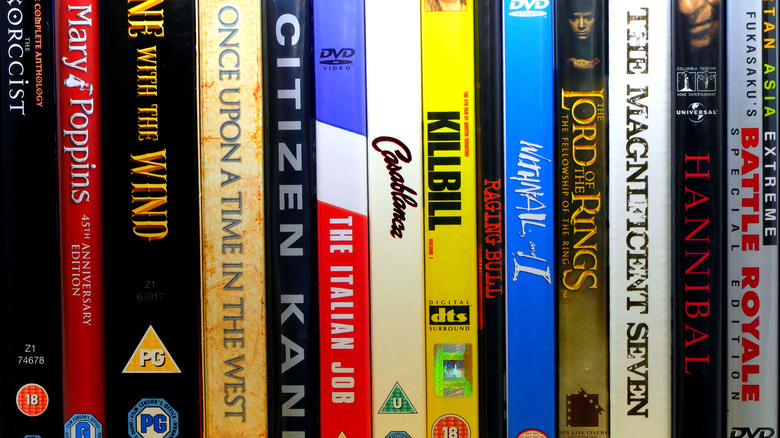The Real Reason The National Film Registry Was Created
The National Film Registry is an archive of over 800 films, documentaries, and shorts deemed culturally, historically, or aesthetically significant to the United States (via The Hollywood Reporter). Every year, a board of distinguished names in cinema — along with thousands of votes and emails from the American public — petitions the librarian of Congress to approve 25 titles to be preserved by the government.
This preservation is the most obvious reason behind the National Film Registry's existence. Over half of American movies made before 1950 are lost, and less than 10 percent of films made before 1929 survive today. When a film is added to the list, the Library of Congress works with studios, filmmakers, and historical societies to make sure a copy is preserved and maintained at the national library. This way, none of the original copies submitted to the film registry will be lost.
Film remasters inspired the Library's creation
The National Film Registry directly followed the passing of the National Film Preservation Act of 1988, according to the Library of Congress. The act was passed following a whirlwind decade for cinema. The process of moviemaking was changed with new developments in how movies were financed, but there was an even bigger shift in what happened after a film was shown in theaters. New distribution channels, advancements in home entertainment, and changes to artist rights meant cinema was never the same after the '80s. Most controversial was the trend of altering old movies, such as remasters or colorizations of black-and-white films.
The "material alteration" debate grew large enough that Congress got involved by drawing up the National Film Preservation Act and creating the annual tradition of adding 25 titles a year to its ever-growing film registry. Since then, it has sought to preserve the most important — not necessarily best — works in American cinematic history. The rise of streaming, digital media, and CGI actors in the 2010s has caused an arguably bigger shakeup than the 1980s, but for now, the National Film Registry soldiers on by making sure original copies of valuable movies stay safe.

